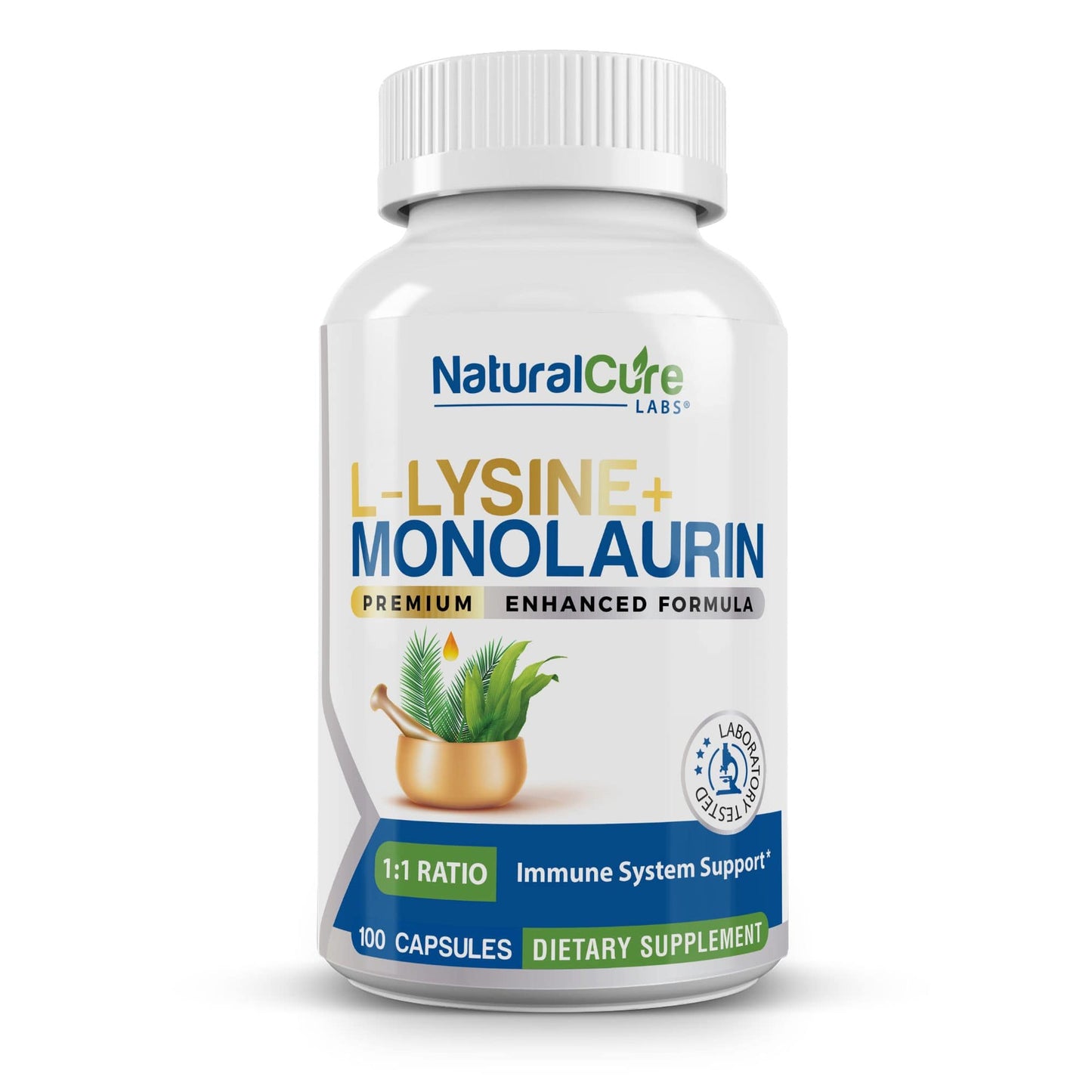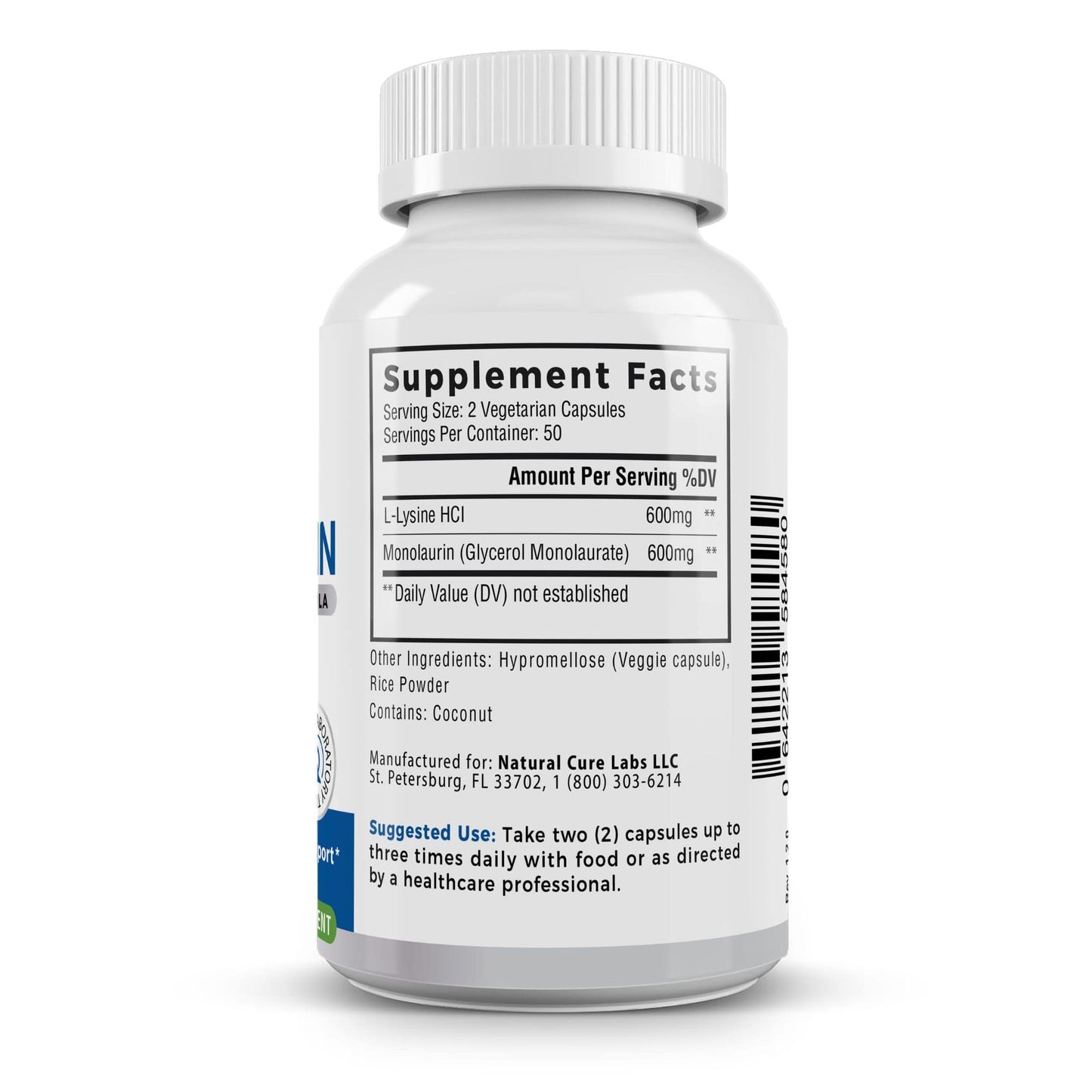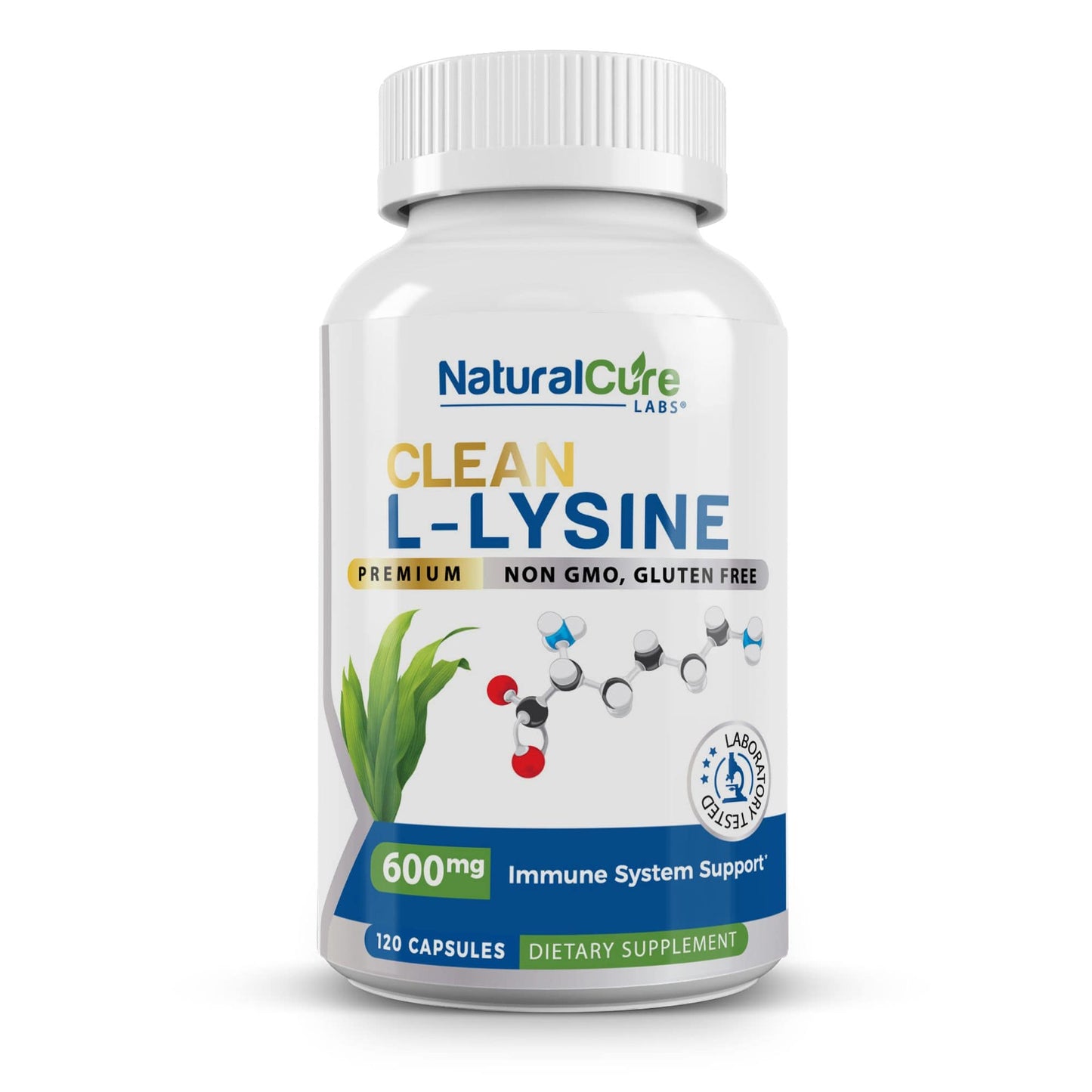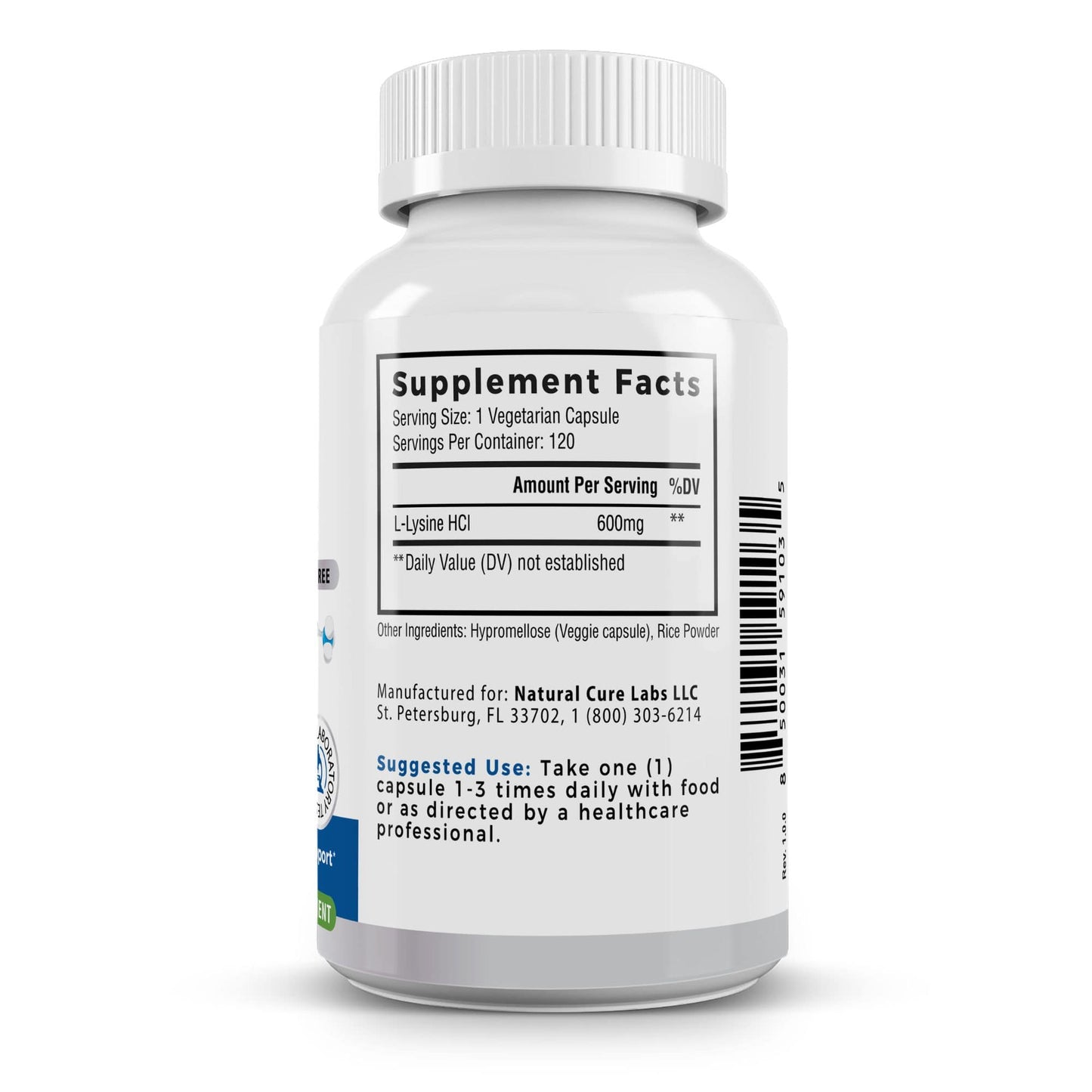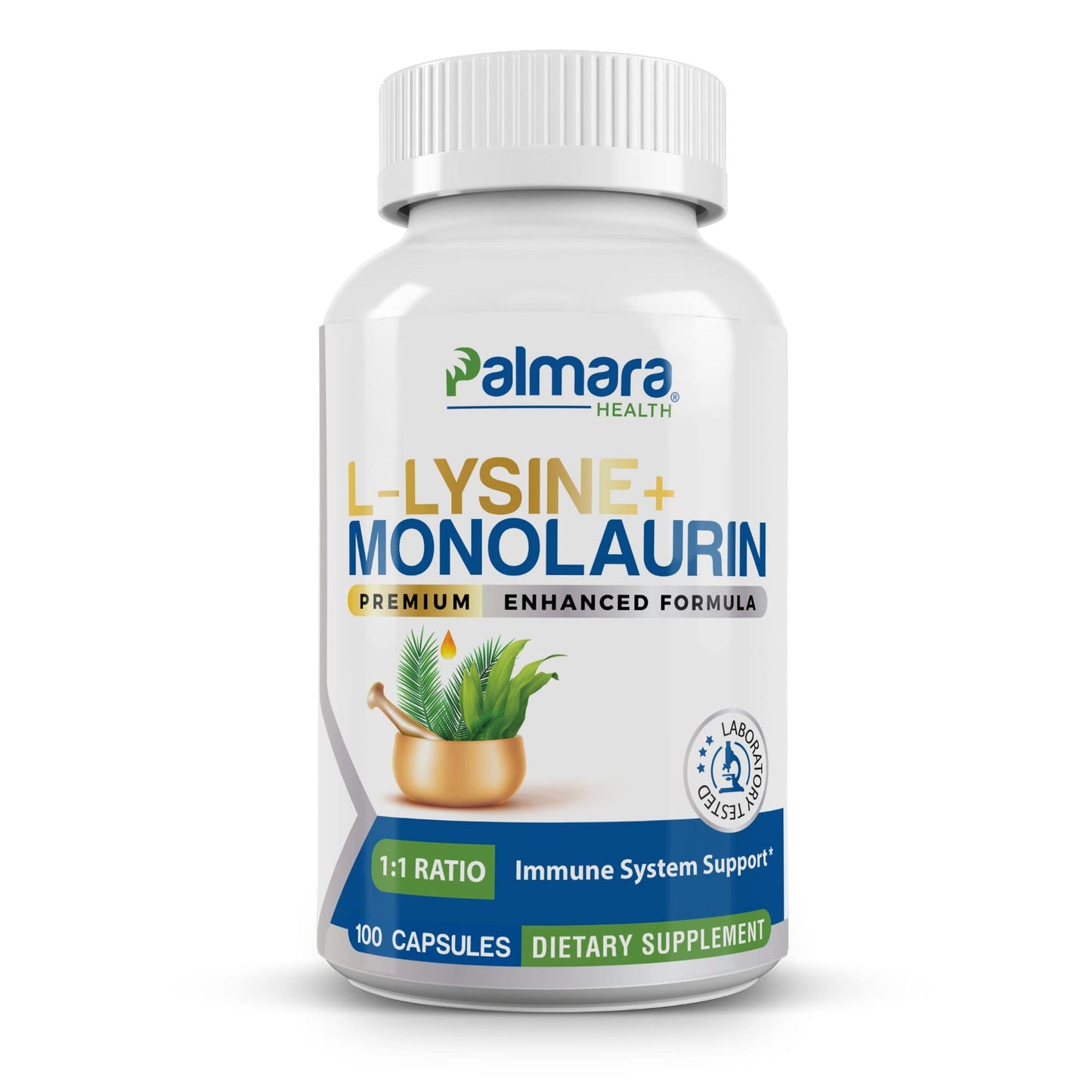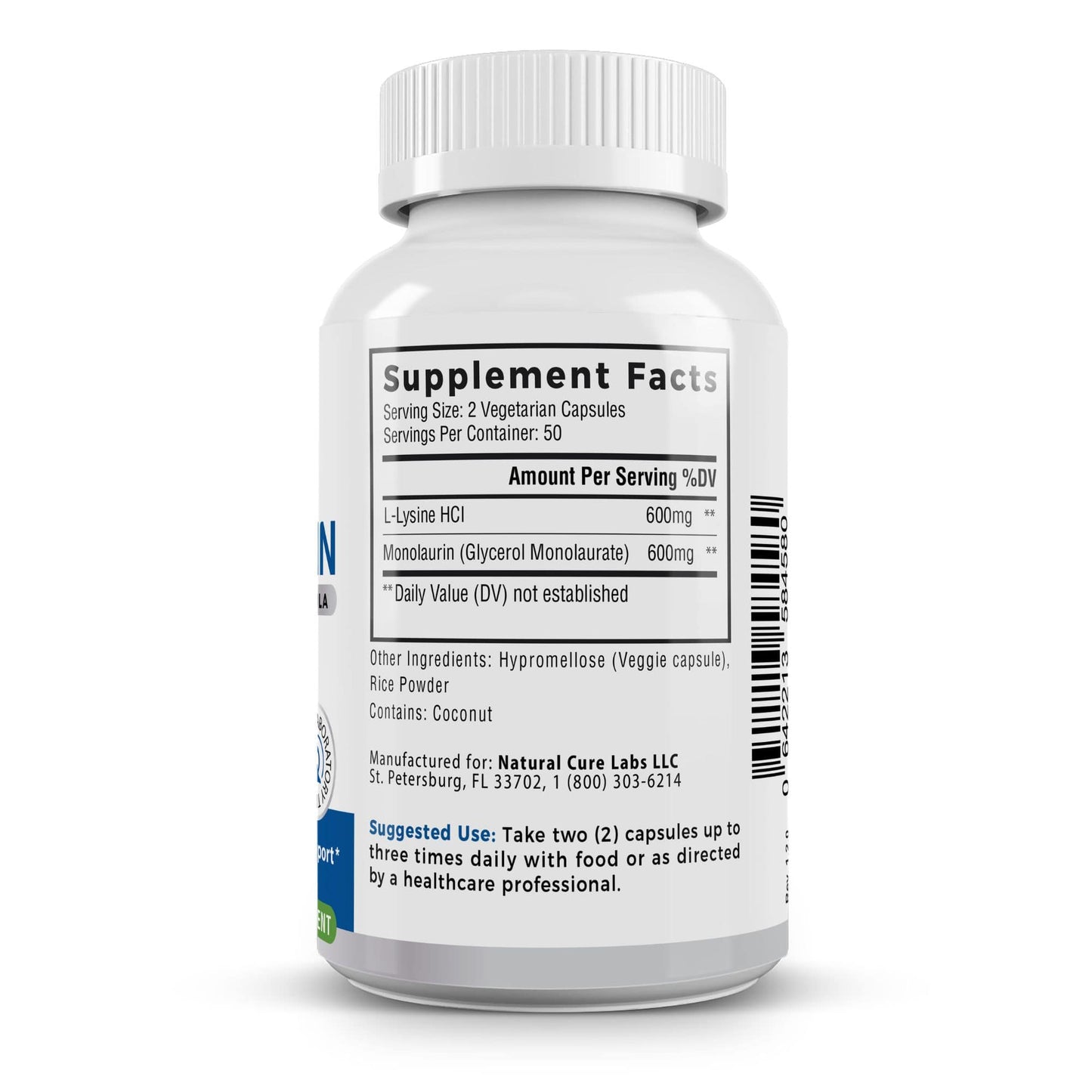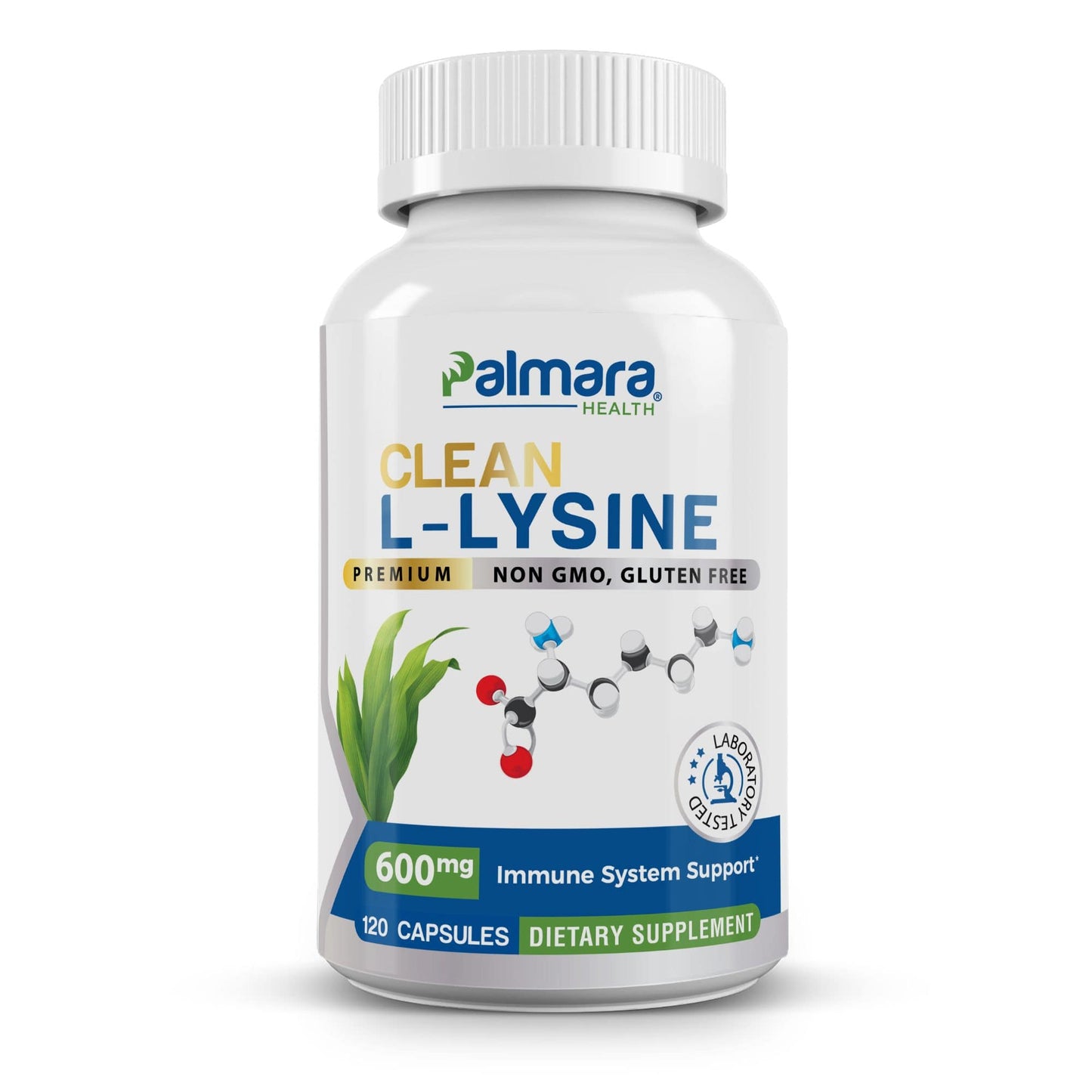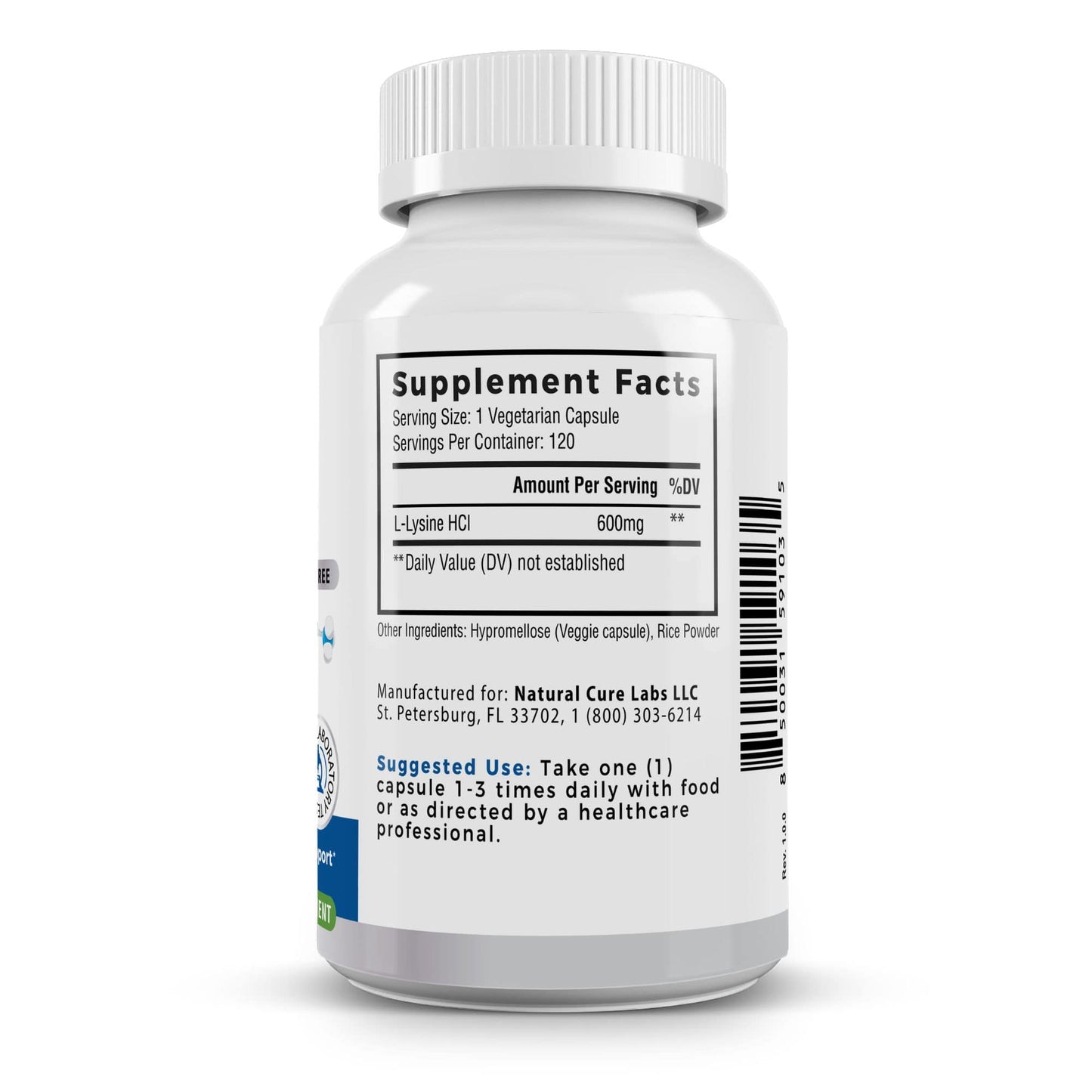L-Lysine is an essential amino acid crucial for various bodily functions, including supporting the immune system and aiding in the maintenance of healthy skin.‡
L-Lysine Overview
L-Lysine is one of the nine essential amino acids that the human body cannot produce on its own. It plays a vital role in protein synthesis, calcium absorption, and the production of hormones, enzymes, and antibodies.‡
Found in foods like meat, fish, dairy, and legumes, L-Lysine is important for proper growth and muscle turnover. It also has a key role in the body's production of carnitine, a nutrient responsible for converting fatty acids into energy and helping lower cholesterol.‡
L-Lysine is often noted for its potential in supporting the body’s natural defense mechanisms. Research suggests that Lysine supplementation can help with overall immune, skin, and muscle health.‡
Moreover, L-Lysine may contribute to the support of healthy skin, proper wound healing, and the maintenance of strong bones when combined with other essential nutrients.‡
The Potential of L-Lysine
The benefits of L-Lysine include:
- Maintain a healthy immune system response‡
- Supporting the maintenance of healthy skin‡
- Contributing to bone health by aiding calcium absorption‡
- Assisting in muscle repair and growth through its role in protein synthesis‡
As an essential amino acid, L-Lysine is a critical component of a healthy diet and may offer additional benefits when used in appropriate supplementation.‡
Sources of L-Lysine
L-Lysine can be found in high-protein foods such as:
- Red meat, poultry, and pork
- Fish, particularly sardines and cod
- Dairy products like milk, cheese, and yogurt
- Legumes, including beans and lentils
- Eggs
Products with L-Lysine
References and Citations
- Civitelli, R., Villareal, D.T., Agnusdei, D., Nardi, P., Avioli, L.V., & Gennari, C. (1992). Dietary L-lysine and calcium metabolism in humans. Nutrition, 8(6), 400-405.
- Flodin, N.W. (1997). The metabolic roles, pharmacology, and toxicology of lysine. Journal of the American College of Nutrition, 16(1), 7-21.
- Griffith, R.S., Walsh, D.E., Myrmel, K.H., Thompson, R.W., & Behforooz, A. (1987). Success of L-lysine therapy in frequently recurrent herpes simplex infection. Treatment and prophylaxis. Dermatologica, 175(4), 183-190.
- Tomblin, F.A. Jr., & Lucas, K.H. (2001). Lysine for management of herpes labialis. American Journal of Health-System Pharmacy, 58(4), 298-300, 304.
‡ These statements have not been evaluated by the Food and Drug Administration. This product is not intended to diagnose, treat, cure, or prevent any disease.




